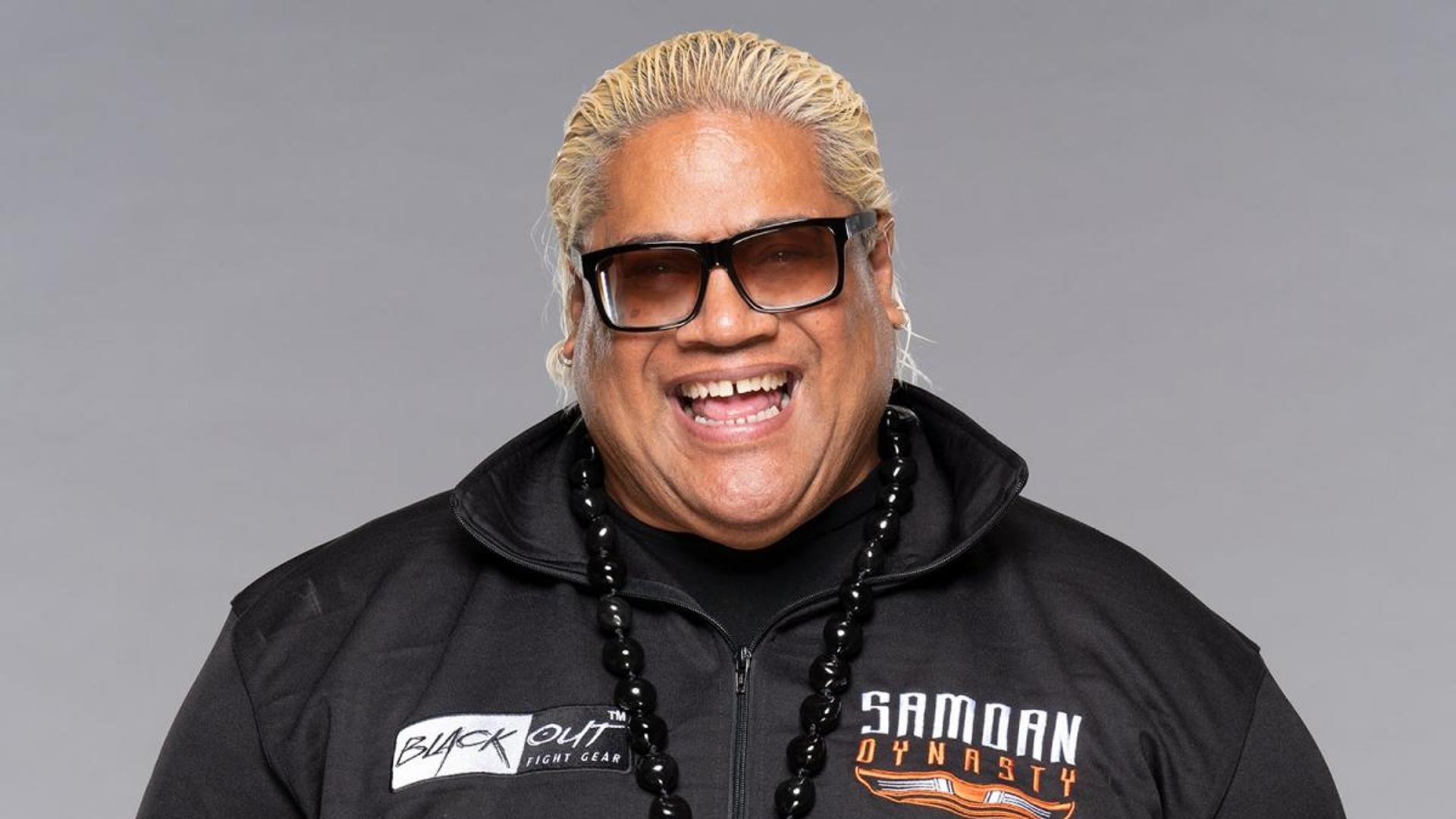Talisua Fuavai Fatu: The Ultimate Guide To Unlocking Its Secrets
Let me drop a bomb on you right now – Talisua Fuavai Fatu is not just some random phrase; it’s a cultural gem waiting to be discovered. Imagine diving into a world where tradition meets modernity, where every word carries centuries of wisdom and meaning. If you've ever wondered what makes this term so special, you're in the right place. This article will take you on a journey through its roots, significance, and how it impacts our lives today.
Now, before we dive deep into the heart of Talisua Fuavai Fatu, let’s get one thing straight – it’s more than just a phrase. It represents a way of life, a philosophy that transcends language barriers. Whether you're a linguist, a culture enthusiast, or simply someone curious about the world, this topic has something for everyone. So grab your favorite drink, sit back, and let’s explore together.
Before we move forward, here’s a quick teaser: Talisua Fuavai Fatu isn’t just about words; it’s about understanding the people behind them. From its origins to its modern-day relevance, this article will uncover everything you need to know. So buckle up because we’re about to embark on an adventure!
- Deephotling The Ultimate Guide To Unlocking Its Potential
- Bethany789 Unveiling The Digital Persona Behind The Screen
Table of Contents
- What is Talisua Fuavai Fatu?
- Historical Background
- Cultural Significance
- Modern Interpretations
- Language and Usage
- Key Concepts
- Impact on Society
- Famous Figures
- Practical Applications
- Future Trends
What is Talisua Fuavai Fatu?
Alright, let’s start with the basics. Talisua Fuavai Fatu is a term rooted in Polynesian culture, specifically from the Tongan language. But don’t let that scare you – even if you’re not fluent in Tongan, you can still appreciate its beauty. In simple terms, it refers to the art of storytelling through wisdom. Think of it as a bridge between the past and the present, where ancient knowledge is passed down through generations.
Here’s the kicker: Talisua Fuavai Fatu isn’t just about telling stories; it’s about preserving culture, values, and traditions. Every word, every phrase, carries a deeper meaning that resonates with those who listen. It’s like a secret code that only the initiated can fully understand. And trust me, once you crack the code, you’ll never look at storytelling the same way again.
Breaking Down the Phrase
Let’s break it down, shall we? Talisua means “story” or “narrative,” Fuavai means “to gather” or “collect,” and Fatu means “stone” or “foundation.” Put them all together, and you’ve got a phrase that literally translates to “collecting stories as a foundation.” Pretty cool, right?
- Sarah Jessica Parker Weight The Real Story Behind Her Iconic Body
- Jodie Comer Relationship A Closer Look Into The Life Of The Enigmatic Star
But here’s the thing – it’s not just about collecting stories. It’s about using those stories to build something meaningful. Whether it’s a community, a family, or even an individual’s identity, Talisua Fuavai Fatu plays a crucial role in shaping who we are.
Historical Background
Now that we’ve got the basics down, let’s talk history. Talisua Fuavai Fatu has been around for centuries, passed down orally from one generation to the next. Back in the day, there were no books or smartphones – just people sitting around a fire, sharing tales of the past. These stories weren’t just for entertainment; they were lessons, warnings, and celebrations all rolled into one.
Fast forward to today, and the tradition lives on. Sure, the medium might have changed – from oral storytelling to written works and digital media – but the essence remains the same. It’s a testament to the resilience and adaptability of cultural practices.
Key Historical Figures
Throughout history, there have been individuals who have played a significant role in preserving Talisua Fuavai Fatu. Think of them as the guardians of this cultural treasure. Some of these figures include:
- Tupou I – The first king of modern Tonga, who emphasized the importance of cultural preservation.
- Hema – A renowned storyteller whose works are still studied today.
- Fakafanua – A scholar who documented many of the oral traditions, ensuring they weren’t lost to time.
Cultural Significance
So why does Talisua Fuavai Fatu matter? Well, it’s not just a cultural artifact – it’s a living, breathing part of Tongan identity. It helps define who we are as individuals and as a community. Imagine a world without stories – it would be pretty dull, wouldn’t it?
But here’s the thing – it’s not just about Tonga. The principles behind Talisua Fuavai Fatu can be applied to any culture, any society. It’s about valuing our past, learning from it, and using it to shape our future. It’s about recognizing that we’re all connected by the stories we tell.
How It Shapes Identity
Let’s talk identity for a second. Talisua Fuavai Fatu plays a crucial role in shaping how people see themselves and their place in the world. Whether it’s through family stories, community legends, or national epics, these narratives help us understand who we are and where we come from.
And let’s not forget the social aspect. Sharing stories is a way of connecting with others, building relationships, and fostering a sense of belonging. It’s like a universal language that transcends borders and backgrounds.
Modern Interpretations
Now, let’s bring it into the present. In today’s fast-paced world, Talisua Fuavai Fatu has taken on new forms. Social media, blogs, podcasts – you name it, and you’ll find examples of this tradition being adapted to modern platforms. But here’s the kicker – the core message remains the same.
Take, for example, the rise of digital storytelling. Platforms like YouTube and TikTok have given people a new way to share their stories with the world. And while the medium might be different, the goal is still the same: to connect, to educate, and to inspire.
Examples in Media
Here are a few examples of Talisua Fuavai Fatu in action:
- The “Tongan Tales” podcast, which features stories from everyday people.
- The “Fatu Chronicles” YouTube channel, which combines traditional storytelling with modern visuals.
- Instagram accounts dedicated to sharing cultural stories and traditions.
Language and Usage
Let’s talk language for a second. Talisua Fuavai Fatu is deeply rooted in the Tongan language, but that doesn’t mean it can’t be appreciated by non-speakers. In fact, many of its principles can be applied to any language or culture. It’s all about the art of storytelling and the power of words.
But here’s the thing – language is constantly evolving. New words, phrases, and expressions are created all the time, and Talisua Fuavai Fatu is no exception. It’s a living, breathing tradition that adapts to the times while staying true to its roots.
Common Phrases
Here are a few common phrases you might encounter:
- Talisua fakatonga – Traditional Tongan storytelling.
- Fuavai kava – Gathering for kava ceremonies, often accompanied by storytelling.
- Fatu fakatupu – Building a foundation for the future.
Key Concepts
Now that we’ve covered the basics, let’s dive deeper into the key concepts behind Talisua Fuavai Fatu. There are a few core ideas that underpin this tradition, and understanding them is crucial to appreciating its significance.
First up, there’s the idea of reciprocity. In Tongan culture, storytelling is often a two-way street. It’s not just about telling stories; it’s about listening to others and learning from their experiences. It’s a mutual exchange of knowledge and wisdom.
Then there’s the concept of community. Storytelling is rarely a solo activity. It’s something that brings people together, creating a shared experience that strengthens bonds and fosters collaboration.
Principles of Talisua Fuavai Fatu
Here are a few principles to keep in mind:
- Respect for elders and their stories.
- Emphasis on oral tradition over written records.
- Focus on community and shared experiences.
Impact on Society
So what’s the big deal? Why should we care about Talisua Fuavai Fatu in today’s world? The answer is simple: because it has the power to change lives. Whether it’s through education, social cohesion, or personal growth, this tradition has a profound impact on society.
Think about it – in a world where technology dominates and face-to-face interaction is becoming a rarity, Talisua Fuavai Fatu offers a way to reconnect with our humanity. It reminds us of the importance of storytelling, of sharing our experiences, and of learning from one another.
Real-World Applications
Here are a few examples of how Talisua Fuavai Fatu is making a difference:
- Community programs that use storytelling to address social issues.
- Educational initiatives that incorporate traditional narratives into the curriculum.
- Cultural festivals that celebrate the art of storytelling.
Famous Figures
Let’s talk about some of the people who have made Talisua Fuavai Fatu what it is today. These individuals have dedicated their lives to preserving and promoting this tradition, ensuring that it continues to thrive in the modern world.
Brief Biographies
Here’s a quick look at a few notable figures:
| Name | Role | Contribution |
|---|---|---|
| Tupou I | King | Emphasized cultural preservation. |
| Hema | Storyteller | Documented oral traditions. |
| Fakafanua | Scholar | Wrote extensively on Tongan culture. |
Practical Applications
Now, let’s get practical. How can you incorporate Talisua Fuavai Fatu into your everyday life? The good news is, it’s easier than you might think. Whether you’re a teacher, a parent, or just someone looking to connect with others, there are plenty of ways to apply these principles.
For example, you could start a storytelling circle in your community. Or you could use digital platforms to share your own stories with a wider audience. The possibilities are endless – all it takes is a little creativity and a willingness to engage.
Steps to Get Started
Here’s a quick guide to getting started:
- Identify a story you want to tell.
- Find an audience – whether it’s friends, family, or online followers.
- Share your story and encourage others to do the same.
Future Trends
So where is Talisua Fuavai Fatu headed? The future looks bright, thanks to the efforts of those who are working to preserve and promote this tradition. With the rise of digital media and global connectivity, there’s no limit to how far this cultural treasure can reach.
But here’s the thing – it’s up to all of us to ensure that it continues to thrive. Whether it’s through education, advocacy, or simply sharing our own stories, we all have
- Kim Rae Won Children A Closer Look At His Family Life
- Sarah Jessica Parker Weight Kg A Closer Look At Her Journey And More

Photo posted by AnaMaria Fatu (ana.fatu)

Who is Rikishi wife? Know all about Talisua FuavaiFatu

Jimmy Uso's mother, Talisua FuavaiFatu Biography Height, Age, Net